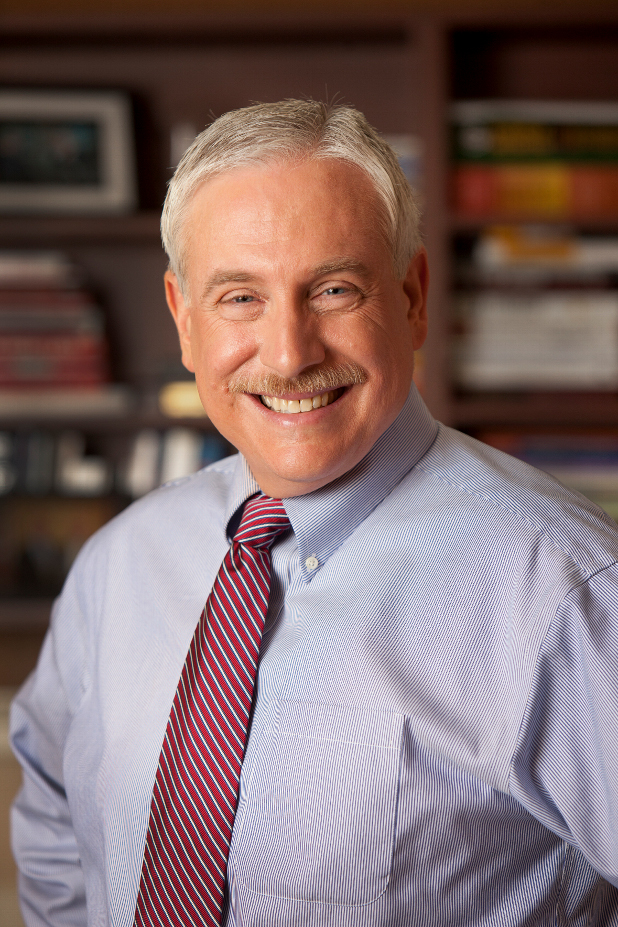Dr. David Pate, president and CEO of St. Luke's Health System in Boise, Idaho, answers Becker's Hospital Review's seven questions.
David C. Pate, MD, JD, has served as president and CEO of St. Luke's Health System in Boise, Idaho, since September 2009. 
Founded in 1902, St. Luke's has experienced significant change since it became a health system in 2006, integrating with multiple hospitals and aligning with many physicians and physician groups. St. Luke's is the largest private employer in Idaho and the state's only locally owned, locally governed health system. St. Luke's is the state's first and only accountable care organization through its participation in the Medicare Shared Savings Program. This year, the health system was recognized as one of the country's Top 15 Health Systems by Truven Health Analytics.
St. Luke's has also made the news in the past couple of years for its role in a highly watched antitrust case. In January, a federal judge sided with the Federal Trade Commission, ruling that St. Luke's must unwind its 2012 acquisition of Saltzer Medical Group in Nampa, Idaho. St. Luke's appealed the decision in June, and in July, an appeals court ruled St. Luke's can maintain its ties with Saltzer while it challenges the ruling.
Dr. Pate previously held numerous positions of increasing responsibility in St. Luke's Episcopal Health System in Houston, last serving as executive vice president and CEO of the system's flagship Texas Medical Center hospital, St. Luke's Episcopal Hospital. (St. Luke's in Texas is not affiliated with the Idaho system.)
Before entering healthcare administration, Dr. Pate was a practicing general internist. He also served as an adjunct professor of law at the University of Houston Law Center in the Health Law & Policy Institute.
Dr. Pate was born overseas, in what was West Germany at the time, while his father served in the 101st Airborne division of the U.S. Army. Though his family made frequent moves, he considers his hometown to be Monmouth, Ill.
Dr. Pate earned his bachelor of arts degree from Rice University in Houston and his medical degree from Baylor College of Medicine in Houston. Dr. Pate received his juris doctor from the University of Houston Law Center. He is the author of a legal textbook titled, "Regulation of Healthcare Professionals."
Just before starting medical school, he met his wife, Lynette, a surgical intensive care nurse, to whom he has been married for 33 years. Dr. Pate has two daughters and three grandchildren, all of whom live in Boise.
Here, Dr. Pate took the time to answer Becker's Hospital Review's seven questions.
What's one thing that really piqued your interest in healthcare?
My brother and I were very close growing up. When I was still very young, he went into the hospital for a protracted stay. I think that is when my interest in becoming a physician first developed, not because I really understood what was involved with my brother's illness, but because I was so overwhelmed by his absence that I thought by becoming a doctor, I would be able to keep my family well and out of the hospital. Here I am, nearly 50 years later, working on how to keep my entire community well and out of the hospital!
What do you enjoy most about Boise?
It's really hard to settle on only one thing. I love the mountains, the four seasons, the values of the region, the lack of traffic, the wildlife, Bronco football, the people, and I love the St. Luke's organization and the great work we are doing.
If you could eliminate one of the healthcare industry's problems overnight, which would it be?
The problem of affordability. No question. In order to achieve this, we will have to solve several other big challenges.
First, it requires that we improve the health of people who are not yet patients, and keep them from becoming patients as long as we can. This work has to be with families and has to start with toddlers. Secondly, we have to work to eliminate the 30 percent to 50 percent of low-value and/or no-value healthcare services currently provided to patients.
And lastly, we have to make our care as safe as possible, incorporate evidence-based practices whenever available, and better coordinate care and manage care transitions. We all have our work cut out for us.
What do you consider your greatest talent or skill outside of the C-suite?
Playing the trumpet and babysitting my grandchildren! I'm finding that my trumpet-playing skills are declining over time, though, and my babysitting skills are improving.
How do you revitalize yourself?
I try to get to the patient care units and visit staff and patients as often as possible. It recharges my batteries and helps me put everything back in perspective. It renews my energy level to tackle those challenges I just described.
The other thing is spending time with my grandkids. They make me forget about the rest of the world.
What's one piece of advice you remember most clearly?
In having to make tough decisions, my COO Chris Roth gave me great advice: "Which choice will add to your trust bank?" It is amazing how often that helps make the decision more clear. Thanks, Chris!
What do you consider your greatest achievement at St. Luke's so far?
It is humbling to know that as the CEO, you achieve almost nothing by yourself. I am so fortunate to work with a top-notch group of executives, an inspiring group of physicians, amazingly caring and dedicated employees and community volunteers who pour their hearts into our organization, people and mission.
With that said, the greatest achievement is our attainment of the Truven recognition. It is external and independent validation that we are saving lives, preventing complications and working together as a system to continually improve the care that we provide.


